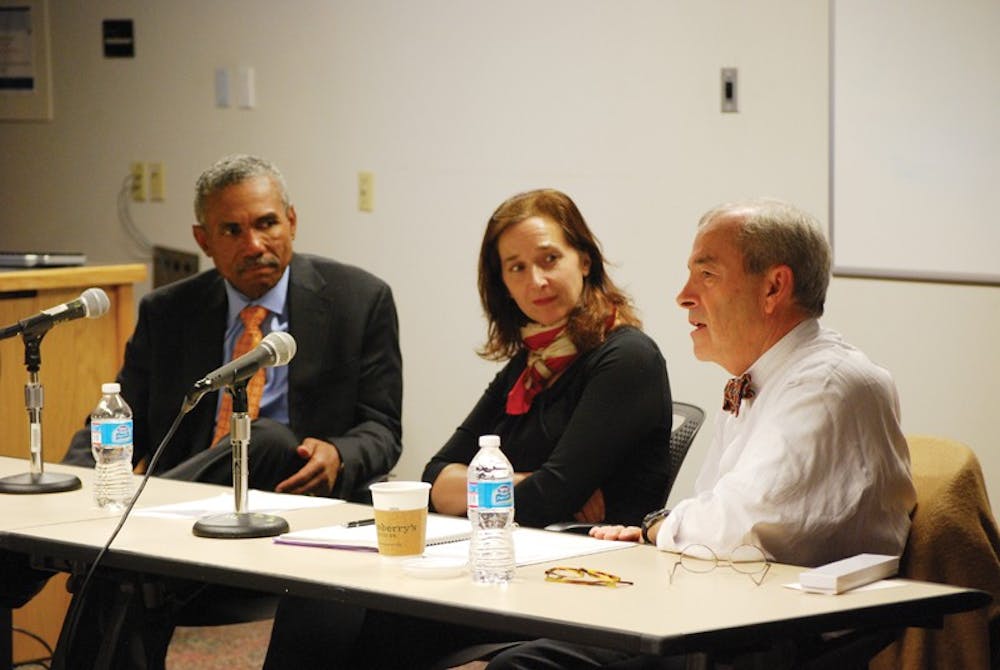Senior Vice Provost J. Milton Adams, Dean Billy Cannaday and Kristin Palmer, the project manager for the University’s partnership with Coursera, spoke Wednesday in Clemons about the University’s plans to offer massive open online courses this spring. Adams saw online learning at the University as an opportunity to enrich the student experience, not to transform it.
“It doesn’t define what we do,” Adams said. “It enhances and embraces what we do well.”
Adams praised the flexibility online learning offers. He said MOOCs — free, credit-less classes hosted online — make a University education accessible to a broader range of students, bridging geographic or socioeconomic circumstances. MOOCs also include students older than 24, making it “possible to be a learner for life,” Adams added.
Increasing globalization makes studying abroad a more appealing option for many. Future for-credit MOOCs could make this transition easier, enabling students to earn course credit away from Grounds, Adams said.
“Our young people will have to be global,” Adams said. “With MOOCs they can still take courses at U.Va. at a distance.”
Coursera announced Tuesday a partnership with the American Council on Education to start to determine whether MOOCs could be taken for credit. Palmer said it was possible that University students would be taking MOOCs for credit in the foreseeable future. But questions remain about how to assimilate MOOCS into the curriculum. “Coursera is an experiment,” Palmer said.
The role the honor system will play in online learning is yet to be determined, Adams said. Coursera has its own honor code students must follow, Palmer said. Students enrolled in MOOCs will also have to hold each other to a high standard of academic integrity, Palmer said. “You will fight for [academic integrity], and your peers will fight for it,” she said.
Cost is another issue. Future funding sources for Coursera courses, which are free, remain unclear.
“If the student population … doesn’t [get] larger, the resources needed to sustain Coursera have to come from someplace else,” Adams said. “We need to have a business model.”
This spring’s MOOCs were decided in what Palmer called a “mad dash,” in the wake of University President Teresa Sullivan’s reinstatement. Choosing which classes will be offered as MOOCs in the future is likely to emerge as another topic of debate.
The University has yet to determine a set process to select possible MOOCS, Palmer said. Currently, deans must approve all MOOC offerings, she said.
The spring semester will function as a trial period, during which the University will evaluate the MOOCs’ success, Palmer said.







